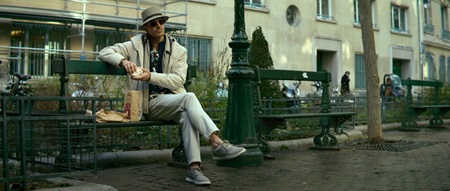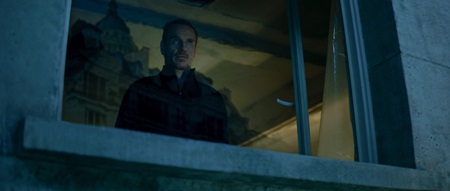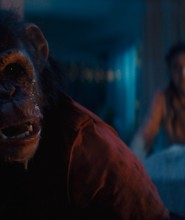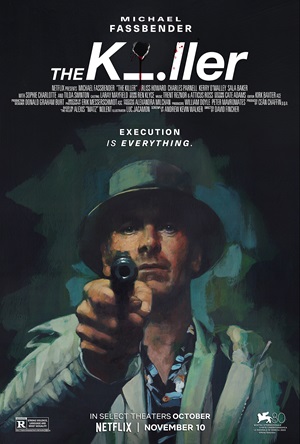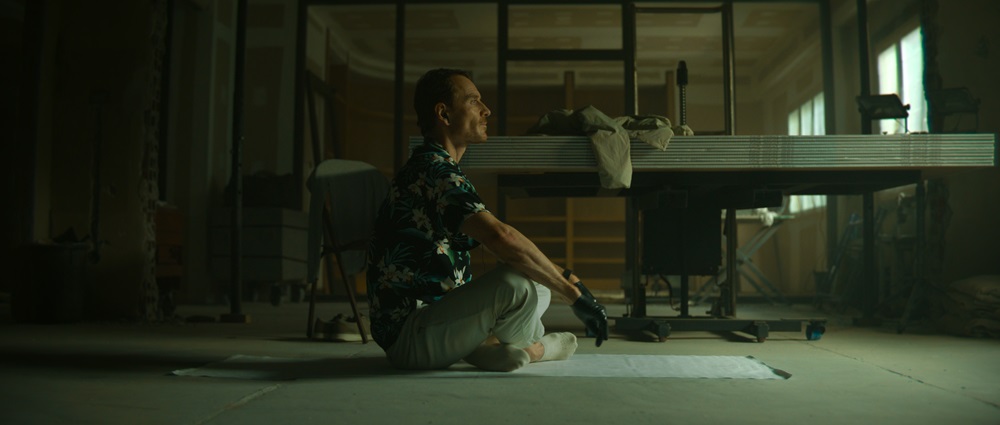
Fincher’s Killer is a Creatively Precise Exercise in Technical Storytelling Wizardry
After his latest assignment goes almost comically wrong, an elite assassin (Michael Fassbender) flees Paris, but not before calling his handler to let him know what happened and that they’ll have to make things right for the client sometime in the unknowable future. When he gets to his secluded, off-the-books home in the Dominican Republic, he finds the place a mess, blood splattered everywhere, and his live-in girlfriend in the hospital, clinging to life.
This will not stand.
Based on the graphic novel written by Alexis “Matz” Nolent and illustrated by Luc Jacamon, The Killer (no relation to John Woo’s 1989 classic) reteams director David Fincher and screenwriter Andrew Kevin Walker for the first time since 1995’s Se7en. It is a calculating, technically immaculate, and emotionally precise thriller, and it moves like lightning, sprinkled with surprisingly shrewd touches of levity. As slight and as inconsequential as it may be, the film is still quite amusing, even if it does vanish from memory not too long after the story’s events have concluded.
The whole thing plays like an interior monologue. The hitman continually speaks to himself, focusing on a personal set of “rules” that he feels are essential for him to be the best at what he does. Of course, as he sets out to even the score after his girlfriend is brutalized, these are all rules he breaks throughout the almost two-hour running time.
The nameless assassin — all his fake passports, credit cards, and the like carry the aliases of famous television sitcom characters — travels to the United States and charts a violent path of retribution that takes no prisoners and pulls zero punches. Along the way, he meets up with the lawyer (Charles Parnell) responsible for his assignments, a fidgety billionaire (Arliss Howard) holding some helpful information, and a fellow “expert” in the clandestine murderous arts (Tilda Swinton) who is nearly as efficient, resourceful, and intelligent as he is.
It all feels not-so-vaguely European, calling to mind Anton Corbijn’s excellent 2010 George Clooney thriller The American or even Jean-Pierre Melville’s legendary 1967 masterpiece Le Samouraï starring Alain Delon. But Fincher switches things up ever so slightly by making his central killer arguably the least “cool” hitman one could imagine. Instead of fancy suits, iconic chapeaus, or an elegantly coiffed mixture of both, Fassbender’s lethal character attempts to be as unmemorable as humanly possible. This guy wants to boringly blend in with his surroundings, and costume designer Cate Adams makes certain he does just that.
Visually and audially, Fincher leaves nothing to chance. No shock there, as this has been the director’s hallmark since Alien3. But there is something about what director of photography Erik Messerschmidt accomplishes here that was frankly missing from his last Netflix collaboration with the director, 2020’s Mank. While he did win the Oscar for Best Cinematography for that drama, I found his compositions on that one to be substantially underwhelming. Here, however, they have a streamlined vibrancy that’s frequently electrifying, and the way his camera glides when it follows Fassbender on his journey is exhilaratingly effortless.
I have a suspicion many will be drawn to the scene between Fassbender and Swinton, and it is a master class in both cinematic execution and complex, person-to-person performance. The two actors are divine in the scene, the latter in particular, and the way one verbally spars with their almost totally silent adversary is a thing of poetically unsettling beauty.
Personally, I was more enamored by all the quiet bits, the sequences when Fassbender recites many of his internal monologues, frequently set to one of the film’s 11 songs by The Smiths (when the lyrics usually play in clever opposition to what is happening on screen). These moments feel fresh and unusual. They have an imaginative creativity that far exceeds their relative simplicity. It’s all rather wonderful, and I loved that, even when I was chuckling, I still felt a primordial shiver run up my spine at the cold possibilities of what was going to happen next.
None of this adds up to a heck of a lot, and much like Panic Room, this is Fincher playfully shooting from the hip as he tries to toy with genre conventions in a manner that might catch the audience slightly unaware, even when they know full well where everything is likely headed. But The Killer slays from an entertainment standpoint, and that’s truly all that matters.
Film Rating: 3 (out of 4)


